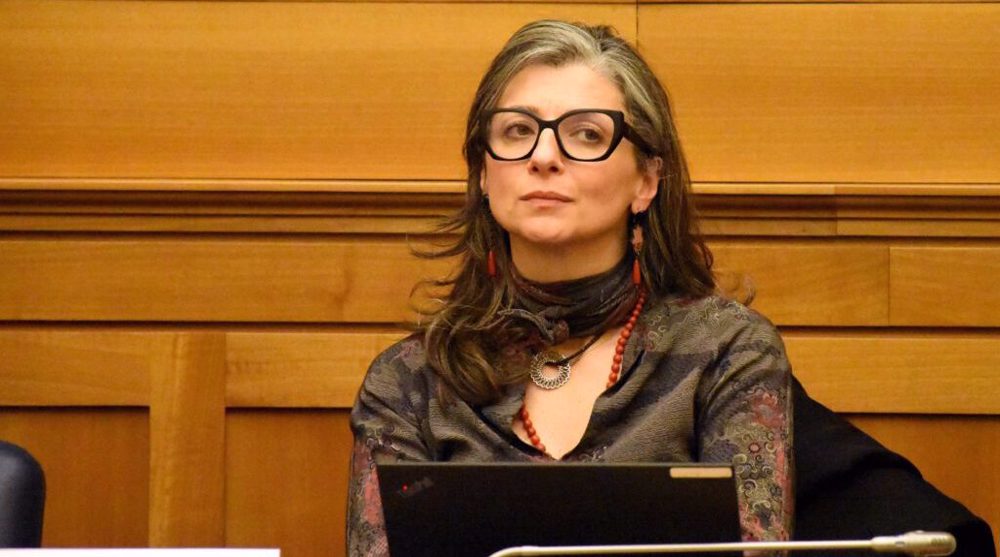French economy hit hard by ‘yellow vest’ protests: Minister
French finance minister says three weeks of “yellow vest” protests have strongly influenced the country’s economy, with trade in retailers, hotel chains, high-street stores, and restaurants significantly falling as a result of the unrest.
Bruno Le Maire made the remarks on Monday after a meeting with industry groups and business federations affected by the protest movement.
He further noted that sector revenues had been hit by between 15 and 50 percent.
Small retailers had seen a fall in revenue of between 20 and 40 percent, the hotel industry was seeing reservations down 15 to 25 percent, and restaurants, depending on their location, had seen takings collapse by between 20 and 50 percent, he noted.
"The impact is severe and ongoing," Le Maire said, emphasizing that it was nationwide, although Paris, after riots and looting in some of its most upmarket districts on Saturday afternoon and evening, was particularly affected.
During Saturday's disturbances in Paris, tourists were left shocked, with some saying they would cut short their visit.
The movement began on November 17 as a social-media-planned protest against fuel-tax rises but has since morphed into an uprising against the policies of President Emmanuel Macron.
The protests have taken on a name of its own: the "yellow vest" protests, a reference to the vests worn by people active in the transportation industry.
Three people have been killed in the protests since demonstrations started more than two weeks ago, police said.
French ambulance drivers on Monday joined the nationwide protests. They blamed the 40-year-old President Macron, whom they see as detached from the everyday struggles of ordinary people, for their woes.
Riot police, however, used tear gas to disperse the drivers demonstrating against a new medical transport finance reform in Paris.
Protesting ambulance workers demand the suspension of the new medical transport finance reform, which they say undercuts smaller ambulance companies.
At least 100 ambulance workers used their vehicles to block a bridge leading to the National Assembly, with paramedics screeching sirens and blocking access to the square from Rue de Rivoli.
Protesters not to attend talks
Macron on Sunday ordered his prime minister to hold talks with political leaders and "yellow vest" demonstrators to end nationwide protests.
Attempts by the government to negotiate with the grassroots movement have failed, in large part because representatives have insisted on public talks broadcast on TV.
Representatives of the moderate wing of the protest movement announced on Monday they will not attend proposed talks with Prime Minister Edouard Philippe after being threatened by hardliners with reprisals.
The delegates, who extended a hand of dialogue to the government after large-scale riots in Paris, told AFP they decided against attending talks with Philippe on Tuesday for "security reasons".
The protest movement has no identifiable leadership and has gained momentum via social media, encompassing a whole range of participants from the anarchist far left to the nationalist far right, and plenty of moderates in between.
Macron has sought to douse the anger by promising three months of nationwide talks on how best to transform France into a low-carbon economy without penalizing the poor.
He also vowed to slow the rate of increase in fuel taxes if international oil prices rise too rapidly but only after a tax rise due in January.
Fears that the state of unrest in France could move across borders turned into reality on Saturday. In Brussels, the current seat of the European Union, hundreds of people donned yellow vests and protested outside major EU buildings.
The Belgian prime minster has pushed ahead with an unpopular reform plan under which he will raise the retirement age to 67 from the current 65 and the retiring workers will see the retirement wage reduced even further.
Read more:
Iran’s layered arsenal primed to deter – and decimate – US warships in Persian Gulf
Iranian commander dismisses US military buildup in West Asia as ‘theatrical gesture’
US special envoy says Trump ‘curious’ as to why Iran hasn’t ‘capitulated’ yet
Lindsey Graham urges Trump to ignore aides opposing war on Iran
Far-right, anti-Islam protest sparks counter-protests in Manchester
Press TV's news headlines
Sudan’s mining sector suffers $7 billion loss amid ongoing civil war
Ansarullah slams Israel’s massacre in east Lebanon, urges unified Arab action












 This makes it easy to access the Press TV website
This makes it easy to access the Press TV website